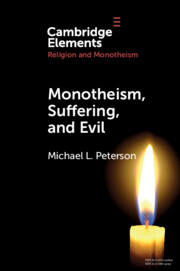Element contents
Monotheism, Suffering, and Evil
Published online by Cambridge University Press: 14 April 2022
Summary
- Type
- Element
- Information
- Online ISBN: 9781108906487Publisher: Cambridge University PressPrint publication: 12 May 2022
References
- 15
- Cited by



